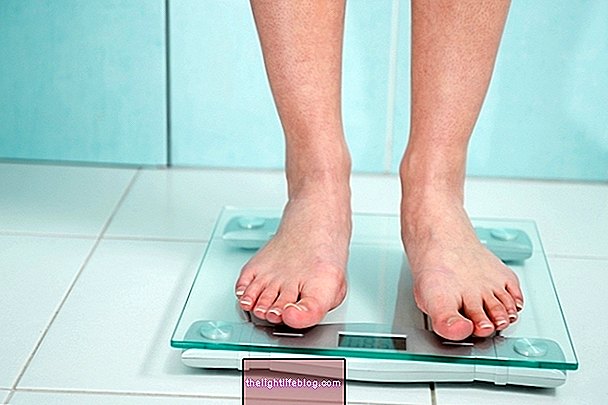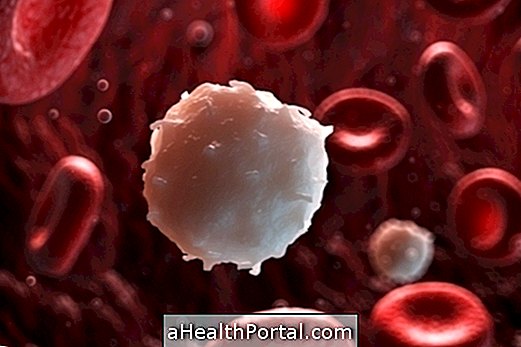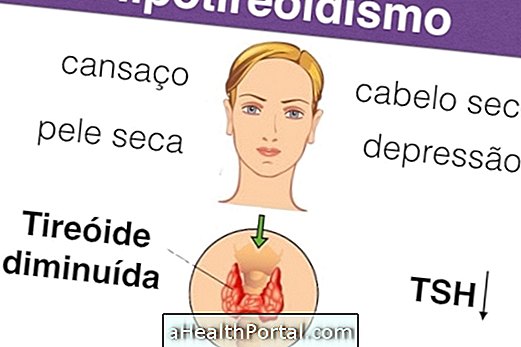Night Eating Syndrome, also known as Night Eating Disorder, is characterized by 3 main points:
1. Morning anorexia: the individual avoids eating during the day, especially in the morning;
2. Afternoon and evening hyperphagia: after the absence of meals during the day, there is an exaggerated consumption of food, especially after 6 pm;
3. Insomnia: which causes the person to eat at night.
This syndrome tends to be triggered by stress, and occurs especially in people who are already overweight. When problems improve and stress decreases, the syndrome tends to disappear.

Symptoms of Night Eating Syndrome
Night Eating Syndrome occurs more in women and can appear in childhood or adolescence. If you think you may have this disorder, check your symptoms:
- 1. Do you eat more between 10 pm and 6 am than during the day?
No Yes
- 2. Do you wake up at least once during the night to eat?
No Yes
- 3. Do you feel in a constant bad mood, which is worse at the end of the day?
No Yes
- 4. Do you feel you can't control your appetite between dinner and bedtime?
No Yes
- 5. Do you have trouble falling asleep or staying asleep?
No Yes
- 6. Not hungry enough to have breakfast?
No Yes
- 7. Do you have a lot of trouble losing weight and can't do any diet correctly?
No Yes

It is important to highlight that this syndrome is associated with other problems such as obesity, depression, low self-esteem in people with obesity. See the difference in the symptoms of binge eating.
How the Diagnosis is Made
The diagnosis of Night Eating Syndrome is made by the doctor or psychologist, and is based mainly on the patient's behavioral symptoms, remembering that there can be no compensating behaviors, as occurs in bulimia when provoking vomiting, for example.
In addition, the doctor may also order tests that measure the hormones Cortisol and Melatonin. In general, cortisol, which is the stress hormone, is elevated in these patients, while melatonin is low, which is the hormone responsible for the feeling of sleep at night.
Understand how nighttime eating disorder occurs in the following video:

How to treat
The treatment of Night Eating Syndrome is done with psychotherapeutic follow-up and use of medications according to the medical prescription, which may include medications such as antidepressants and melatonin supplementation.
In addition, it is also necessary to have a follow-up with the nutritionist and practice physical activity, as regular exercise is the best natural way to improve the production of well-being hormones that control hunger and sleep.
For other eating disorders, see also the differences between anorexia and bulimia.
Was this information helpful?
Yes No
Your opinion is important! Write here how we can improve our text:
Any questions? Click here to be answered.
Email in which you want to receive a reply:
Check the confirmation email we sent you.
Your name:
Reason for visit:
--- Choose your reason --- DiseaseLive betterHelp another personGain knowledge
Are you a health professional?
NoMedicalPharmaceuticalsNurseNutritionistBiomedicalPhysiotherapistBeauticianOther


























